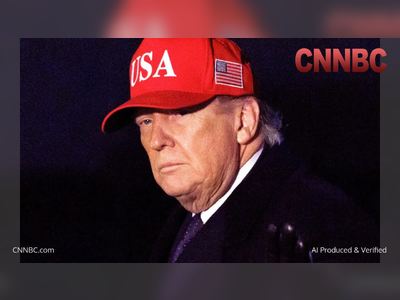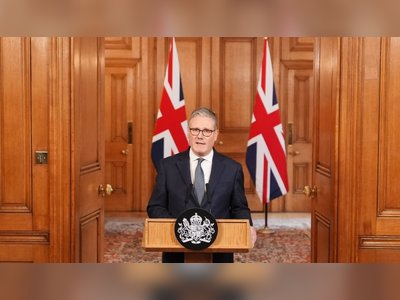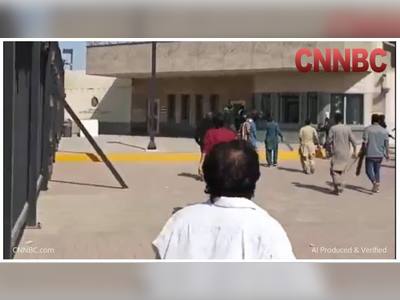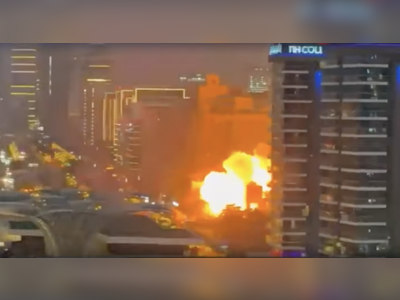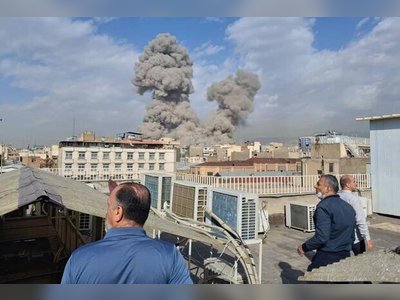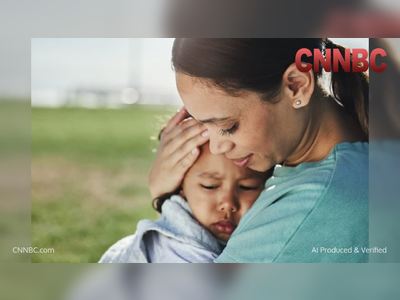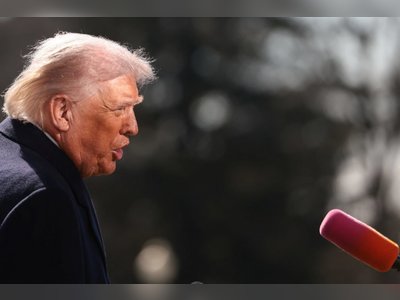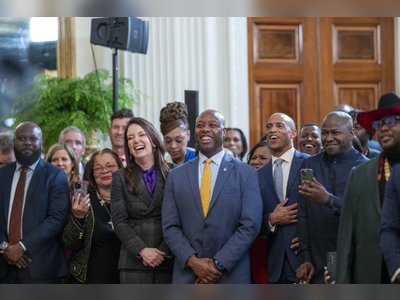
Colombia Escalates Measures Against Guerrilla Violence Amid Rising Death Toll
Government to declare state of emergency as violence in northeastern regions displaces thousands
Colombia is intensifying its response to a surge in guerrilla violence that has claimed over 100 lives and displaced thousands, with President Gustavo Petro declaring a 'war' against leftist guerrillas.
In recent days, the violence has spanned three Colombian departments, from the remote Amazon jungle to the border with Venezuela, displacing approximately 18,300 people, according to the United Nations Office for the Coordination of Humanitarian Affairs.
President Petro has indicated a shift towards a more aggressive approach, announcing plans to implement a 'state of internal commotion.' This emergency measure, once decreed, will allow the executive branch to pass certain laws without the need for congressional approval.
The country's defense ministry has already dispatched 5,000 troops to the affected border regions to curb the escalating violence.
The National Liberation Army (ELN) is reportedly behind the recent attacks, particularly in the Catatumbo region, resulting in at least 80 fatalities.
This area is critical due to its geographic location along the border with Venezuela and its significant coca production.
The violence has also involved clashes between rival guerrilla groups, including FARC dissidents, and incidents where ELN rebels are alleged to have targeted civilians accused of collaborating with rival factions.
Despite recent peace talks initiated by President Petro with the ELN and other armed groups, these efforts have faltered amid growing hostilities and unresolved disagreements regarding disarmament and economic reforms.
Subsequently, the humanitarian impact of the conflict has intensified, with thousands seeking refuge in towns like Tibú, Ocana, and Cucuta, where shelters and temporary accommodations are filling rapidly.
The uprooted communities, many comprising rural farmers, are seeking safety from threats and attacks.
The crisis represents a significant challenge for President Petro's administration, which has focused on achieving 'total peace,' a mandate thwarted by ongoing violence from leftist and dissident groups entrenched in the cocaine trade.
The precarious security situation underscores the complexities facing Colombia in fulfilling promises of peace and stability as smaller rebel factions vie for control in a post-FARC era.
In recent days, the violence has spanned three Colombian departments, from the remote Amazon jungle to the border with Venezuela, displacing approximately 18,300 people, according to the United Nations Office for the Coordination of Humanitarian Affairs.
President Petro has indicated a shift towards a more aggressive approach, announcing plans to implement a 'state of internal commotion.' This emergency measure, once decreed, will allow the executive branch to pass certain laws without the need for congressional approval.
The country's defense ministry has already dispatched 5,000 troops to the affected border regions to curb the escalating violence.
The National Liberation Army (ELN) is reportedly behind the recent attacks, particularly in the Catatumbo region, resulting in at least 80 fatalities.
This area is critical due to its geographic location along the border with Venezuela and its significant coca production.
The violence has also involved clashes between rival guerrilla groups, including FARC dissidents, and incidents where ELN rebels are alleged to have targeted civilians accused of collaborating with rival factions.
Despite recent peace talks initiated by President Petro with the ELN and other armed groups, these efforts have faltered amid growing hostilities and unresolved disagreements regarding disarmament and economic reforms.
Subsequently, the humanitarian impact of the conflict has intensified, with thousands seeking refuge in towns like Tibú, Ocana, and Cucuta, where shelters and temporary accommodations are filling rapidly.
The uprooted communities, many comprising rural farmers, are seeking safety from threats and attacks.
The crisis represents a significant challenge for President Petro's administration, which has focused on achieving 'total peace,' a mandate thwarted by ongoing violence from leftist and dissident groups entrenched in the cocaine trade.
The precarious security situation underscores the complexities facing Colombia in fulfilling promises of peace and stability as smaller rebel factions vie for control in a post-FARC era.

